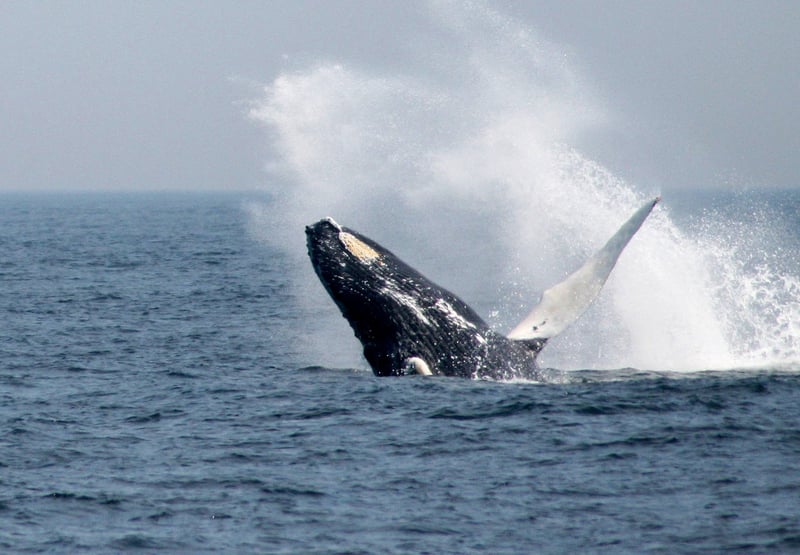
Things were not looking good for a young humpback whale found tangled up in rope off the coast of Cape Cod last week. Thankfully, help was at hand.
CCS image taken under NOAA permit 932-1905
This whale, like thousands of other unfortunate whales around the world, was suffering due to an entanglement it couldn’t escape from. Fishing gear can cut deep into the skin of a whale, causing injuries that worsen over weeks and months, restricting movement and preventing them from feeding properly. Many whales are killed in these tragic circumstances every year.
Luckily, Cape Cod is home to the world renowned Center for Coastal Studies, where I had joined whale rescue teams for the first meeting of the International Whaling Commission’s Global Whale Entanglement Response Network.
Although the whale was thin and had numerous wounds caused by the rope, which had probably been trapped in place for several months, it was cut free by the fast acting rescue team and is hoped to be strong enough to make a recovery.
Bodies on the line
Helping huge animals like whales in the middle of the ocean is no easy feat. It also puts the human rescuers in danger as the animal may not know they are trying to help it.
Scott Landry from the Center for Coastal Studies, who led the rescue effort, told me afterwards; ‘We needed to slow the whale down with buoys and it took a flying knife almost an hour to get through the rope. Luckily, thanks to the purpose made equipment, this could all be done safely with no one in the team needing to get too close to the whale.’
World Animal Protection has been a proud supporter of this network since 2012. Thanks to the generosity of our supporters we have been able to provide the funds to train people all over the world in the skills they need to rescue whales, as well as providing them with the specialist equipment they need to do so. In Mexico alone there are now 180 trained rescuers in 15 teams across the country. This national network has successfully rescued and released 31 whales to date.
Challenges and rewards
It was a privilege to meet the heroic men and women from all over the world who dedicate so much of their lives to rescuing whales. They all had stories to tell about the challenges they face, but also the great reward they get when a whale is successfully set free.
Doug Coughran from West Australia’s Department of Environment and Conservation, told me about a particularly challenging situation he faced when trying to help a female humpback surrounded by three male suitors during the breeding season. The males perceived the rescue boat as a rival and made the disentanglement effort particularly risky as they were demonstrating threatening behaviours. Luckily, the female was eventually disentangled from the fishing gear, but this story demonstrates the reason why appropriate training and equipment is so necessary.
Our Sea Change campaign
World Animal Protection’s Sea Change campaign aims to rid our oceans of ‘ghost gear’, lost or abandoned fishing gear, which is such a major threat to whales as well as many other sea animals. However whilst these animals continue to be trapped by both ghost and active fishing gear, there is a clear role to play for rescue networks. With your help we can continue to help them grow so that more animals can be freed.
I’ll be blogging regularly on the progress of our Sea Change campaign and bringing you stories of the rescues our partners embark on. So keep in touch with our Facebook and Twitter accounts for news on my latest blogs.